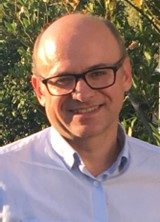
- This event has passed.
Colloquium Jürgen Knödlseder: The carbon footprint of astronomical research infrastructures

By Jürgen Knödlseder, IRAP, GAHEC, Toulouse, France
The carbon footprint of astronomical research is an increasingly topical issue with first estimates of research institute and national community footprints having recently been published. As these assessments generally do not take into account the contribution of astronomical research infrastructures, we propose to complement them by providing an estimate of the contribution of astronomical space missions and ground-based observatories using greenhouse gas emission factors that relate cost and payload mass to carbon footprint. We find that use of astronomical research infrastructures dominates the carbon footprint of an average astronomer. Comparison of our findings with the socio-economic pathways that are compliant with keeping the global average temperature rise below levels of 1.5°C or 2°C suggests that drastic changes are needed on how astronomical research is conducted in the future. Specifically, continuous deployment of ever more and larger astronomical research infrastructures is clearly not sustainable. We argue that a new narrative for doing astronomical research is needed if we want to keep our planet habitable.
Short CV:
Dr. Jürgen Knödlseder graduated at the Technical University of Munich and the Max-Planck Institute for extraterrestrial physics (MPE) in Garching, Germany. He then moved to the Institute of Astrophysics (IAP) in Paris and subsequently to the Institute for Astrophysics and Planetology (IRAP) in Toulouse, France where he became in 2001 a staff scientist of the National Centre for Scientific Research (CNRS). He is working on instrumentation and observations in the field of gamma-ray astronomy, initially using the COMPTEL telescope aboard the CGRO satellite and the SPI telescope aboard the INTEGRAL satellite on the topics of nucleosynthesis and antimatter. More recently he focused on the topic of cosmic rays, working on observations of the Fermi satellite and on the development of the Cherenkov Telescope Array (CTA). He is member of the astrophysics advisory board of the French Space Agency CNES, and he was chairing for nine years the Consortium Board of CTA. Since 2022 he is head of the office for environmental footprint reduction of the CTA Observatory.
REGISTRATION: